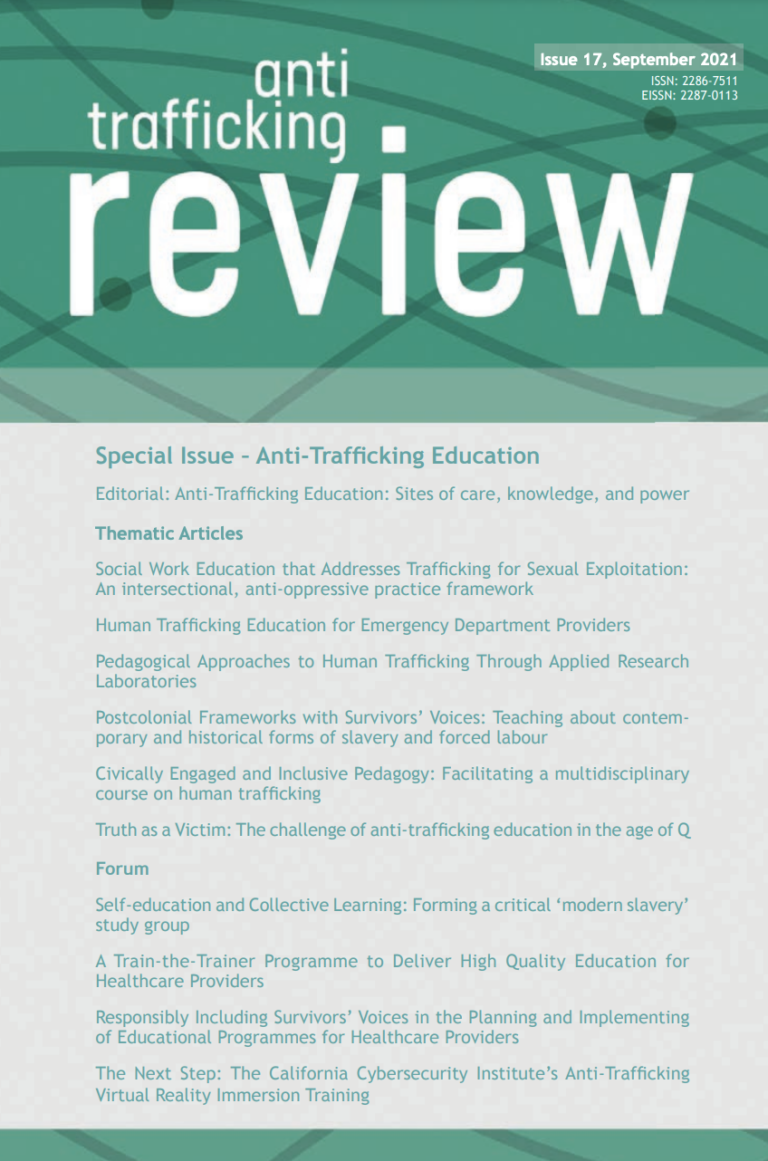The past decade has seen a dramatic increase in the sites for anti-trafficking education and the range of educators who shape how the public and institutions understand and respond to human trafficking.
The aim of this Special Issue of Anti-Trafficking Review is to catalyse a collective process of reflection on and evaluation of the current state and stakes surrounding education on human trafficking. Contributors detail instructional materials and institutional settings, and what they alternately describe as intersectional, anti-oppressive, team-based, civically-engaged, trauma-informed, and survivor-led approaches to teaching and learning about human trafficking. They also emphasise the need for anti-trafficking education to encourage and inform efforts to create structural change, social justice, and individual empowerment.

